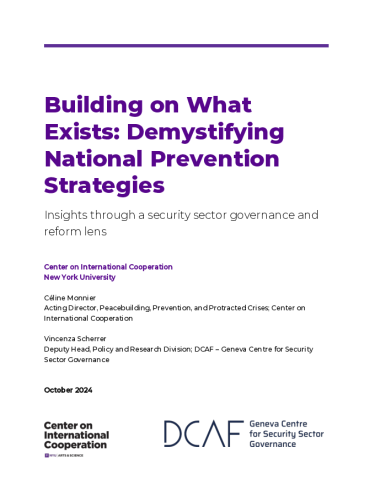In July 2023, United Nations (UN) Secretary-General António Guterres called for the development of national prevention strategies in his New Agenda for Peace (NAfP)—a call now reflected in the Pact for the Future adopted just last month. These strategies are an opportunity to make concrete progress on the UN prevention agenda.
However, there are ongoing concerns about what those strategies mean in practice, as member states face fatigue from managing an ever-growing number of national planning frameworks.
This brief seeks to identify pragmatic approaches to bringing national prevention strategies into the fold through a method not burdensome for national actors and international partners by building on what exists. Particularly, it aims at providing concrete examples of how to link existing plans through a system of efforts to prevent violence, rather than start a new national strategy from scratch.
It also illustrates this by exploring opportunities to link security sector governance and reform (SSG/R) to a broader national prevention strategy. The insights gained from this analysis are not limited to SSG/R; they can also inform any other initiative or plan that seeks to address risk and protective factors for violence.
This policy brief is a joint publication between the Center on International Cooperation and DCAF — Geneva Centre for Security Sector Governance.
